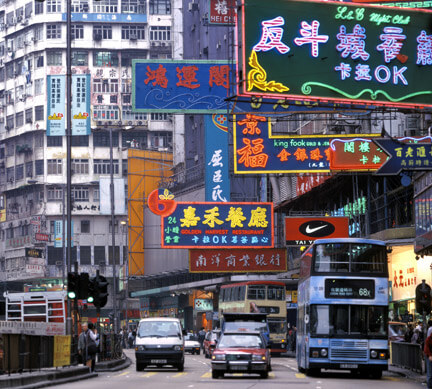Useful travel tips - Travel planning
 Always take out Travel Insurance well in advance of travelling. The policy will cover you for any medical expenses that you incur should you be involved in an accident or become ill and require hospitalization.
Always take out Travel Insurance well in advance of travelling. The policy will cover you for any medical expenses that you incur should you be involved in an accident or become ill and require hospitalization.
Sometimes medical costs can be astronomic and without sufficient insurance cover you could end up in serious trouble.
Apart from medical expenses the policy should also cover things like; legal expenses, cancellation & curtailment, loss of money, baggage & passport, repatriation and personal liability.
Make sure you are covered for any activity that you intend to undertake so that you and your equipment are covered while participating, e.g. skiing, scuba diving etc.
It is very important to enjoy yourself when on a trip, whether it be for business or pleasure and you must not be constantly worrying about what you should or should not be doing.
The following tips may enable you to reduce many of the potential problems you could encounter on your trip.
Fortunately, most people in most countries that you will meet on your travels abroad will be honest, friendly and hospitable. But it is an unfortunate fact of life that not everyone you may meet will be as such. There are unpleasant types out there, albeit very few.
Leave copies of your important documents such as: tickets, drivers license, passport, visas, medical documents, prescriptions and so on with a friend just in case you need a back-up sent to you in an emergency. Also, leave a copy of your itinerary with family or friends at home so that you can be contacted in case of an emergency.
Familiarise yourself with any local laws and customs of the countries to which you are travelling and abide by them. Know the laws about exchanging money and deal only with authorised agents when you exchange money or purchase art or antiques. Remember, while you are in a foreign country, you are subject to its laws.

Never leave your luggage unattended in public areas especially in airports and never accept packages from strangers.
Put identifying markings on the suitcases you check through such as bold coloured tape in a recognizable design. You could also put tape over the closure to prevent tampering by baggage handlers. Don't put all your valuables in luggage you check; e.g. jewelry, cameras, watches. Remove old airline destination tags.
Don't use your home address on you luggage tags. You don't need to let anyone know where your empty house is located. Put your business card in your luggage tag. For an extra measure of security, attach another business card inside in case your bag gets lost.
Make sure you have a signed, valid passport (and any visas, if required). most countries require you to have a full 10 year passport. Your passport should be valid for at least six months after your expected date of return to the UK and have at least two blank pages to allow room for visa stamps. If not, get a new one.
Before you go, make sure you fill in the emergency contact information page of your passport!
Make two copies of your passport identification page. This will facilitate replacement if your passport is lost or stolen. Leave one copy at home with friends or relatives. Carry the other with you in a separate place from your passport.
To avoid being a target of crime, try not to wear conspicuous clothing and expensive jewelry. Dress conservatively and try to blend in. Don't draw attention to yourself, avoid wearing flashy jewelry and don't display large amounts of cash. Do not carry excessive amounts of money or unnecessary credit cards. Carry only enough cash to make it through the day and leave the rest in the hotel's safe.
If you haven't left your valuables at home, leave them in your hotel's safe. Do not carry your passport around, leave it in the safe in your hotel. A photocopy will suffice if local law states that you need to.
Avoid travelling alone. Always be aware of what is going on around you. Try to look as if you know where you are going, this may not be so easy if after all it is the first ever time in that country, but even still look confident as IF you know.

Stick to the main roads and avoid taking shortcuts down narrow alleys and/or poorly lit streets. Carrying maps around looking perplexed, and stopping to look at monuments or buildings, obviously shows that you are from out of town, and may attract the wrong type of attention.
Do NOT pull large amounts of cash out of your pocket. This will catch attention, no matter what country you are in. It sounds so silly, but it is amazing how many people pull out a mound of cash to be some small item.
Try to think about where you are going that day and carry sufficient cash or travellers cheques for that and any unforeseen extras, plus a card. That should cover all you need and will limit any losses if anything did happen. Using travellers cheques, will always be helpful, as will using a credit card for any purchases made so that you can take advantage of the additional insurance offered.

Make a list of your credit card and travellers cheques company phone numbers in case you have to cancel them in the event of loss or theft.
Approach any "special deals" with caution, especially if you have to go off the beaten path to get them. If it sounds too good to be true, it is - it's as simple as that!
Never accept gifts or packages from unknown parties to carry out of the country and deliver or mail to someone they know.
Beware of well-dressed people who happen to be around, happen to speak your language fluently and happen to come up to you and start chatting. Gangs exist that are fronted by some very credible people who win your confidence and then take you to see their friend or a relative where you can buy lots of different things at low, low prices. Don't be tempted - you will get ripped off!
Do NOT accept drinks from anybody that you have just met, especially if in dubious surroundings or do not know, they could be laced with any type of concoction.
Don't under any circumstances get involved with or take drugs. Some counties have severe penalties for drug misuse including the death penalty. You could get to stay a long time in that at the government's expense if you are caught even with a very small amount.
Whereever you travel it is always worthwhile making a note of where your local embassy is. Your embassy is your connection to your home country while on holiday and are there to assist if you lose your passport or are in trouble. You will normally find your embassy in the capital city of a country, though other major cities might have consulates or consulate offices.
If you plan to stay abroad for more than two months, upon arrival you should notify by phone or register in person with the British Embassy or High Commission in the country you are visiting. This will facilitate communication in case someone contacts the embassy looking for you.

